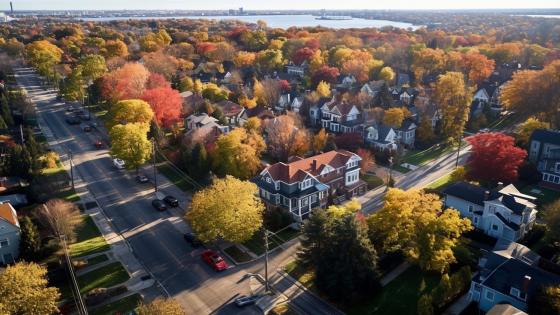Climate change is a formidable and unprecedented challenge (Arrow 2009, Layard et al. 2015). Clearly, the commitments and pledges adopted in Paris will be just the first step in a long journey. The approach likely to be adopted in Paris, at the 21st Conference of the Parties to the Framework Convention on Climate Change (COP21), will rely on a combination of ‘top-down’ and ‘bottom-up’ measures. In Paris, countries are likely to reaffirm the global goal of limiting temperature change to 2°C. They are also likely to adopt arrangements for measuring, reporting, and verifying what countries actually do. However, in contrast to the Kyoto Protocol, the parties to a new Paris Agreement will not be negotiating the contributions of individual countries. Instead, they will recognise the Intended Nationally Determined Contributions (INDCs) submitted by countries, and evaluate whether these suffice in the aggregate to meet the agreed collective goal. Over time, the agreement will track progress in meeting this goal, and determine whether countries fulfill their pledges. However, the Paris Agreement will not incorporate explicit penalties for countries that fail to meet their own pledges. The agreement likely to be adopted in Paris will rely on countries’ voluntary efforts.
We believe Paris will be a useful first step down a new path for global cooperation on limiting climate change. However, whether collective action in limiting emissions ultimately succeeds will depend on whether a broader climate change regime can be built around and on top of the foundation laid in Paris. Climate stabilisation requires a truly profound transformation in the world’s energy system.
This is why our new Vox eBook, Towards a Workable and Effective Climate Regime, which incorporates contributions from 49 experts, looks not only to Paris, but also beyond Paris. The premise of the eBook is that the world needs a climate change regime that is both workable and effective –‘workable’ in the sense that it can be accepted by sovereign states, and ‘effective’ in the sense that it ultimately stabilises the global climate. The Paris Agreement will be workable, but it will also be insufficiently effective. Proposals for an ‘ideal’ agreement, such as one that allocates a fixed carbon budget to individual countries, would be more effective if adopted but are unlikely ever to be adopted. What we need, therefore, are proposals that make Paris more effective, or that supplement what Paris can achieve, while at the same time being as workable as the Paris Agreement. These proposals and ideas are what we asked all authors who contributed to the eBook (see the list below). Most chapters contain indeed workable and effective proposals to implement more ambitious reduction targets in Paris and beyond Paris.
Such a regime must be built on the belief that, by cooperating, every country can be made better off. It must also recognise that different countries have different priorities, and that the measures they agree to undertake must be compatible with states’ national self-interests. Rather than force countries to change their behaviour, as might be true of a top-down arrangement, a workable climate regime must change the incentives states have to emit greenhouse gases, possibly by helping to change their perceptions of what their self-interests really are.
The eBook suggests a number of ways in which this can be done, each of which can be pursued independently, but all of which are likely to be needed to bring about the scale of change that is needed to stabilise the climate. The most important reinforcing measures discussed in the various chapters of the book are the following:
- First, financing of energy R&DD (both public and private) must be scaled up dramatically, so as to lower the cost of alternative energy sources. Although the costs of solar and wind power have come down in recent years, further progress is needed if these and other energy technologies are to realise their full potential and displace fossil fuels. Cooperation with developing countries on energy R&D and technology transfers is also essential.
- Second, carbon pricing must be encouraged. Carbon pricing promotes substitution away from fossil fuels and the adoption of technologies that can capture and store the carbon associated with fossil fuel combustion. It also has the additional attraction of favouring cost-effective emission reductions – an important consideration given that climate stabilisation will not be inexpensive. Finally, carbon pricing provides a means for raising revenues. Several chapters in the eBook discuss innovative and diverse ways to introduce mechanisms to price carbon.
- Third, fast-growing developing countries must be put onto a new and different growth path – one that contributes to their development in the short-to-medium term, but that also limits climate change, and so protects the continued development of these countries, in the long term. This transformation will need to be financed by the developed economies. Equity issues aren’t separate from effectiveness but are part and parcel of it. Benefits in terms of economic development, lower local pollution levels, and improved health and education are at least as important as the direct benefits of lowering greenhouse gas emissions.
- Fourth, and related to the above point, the most vulnerable countries must be helped to adapt to climate change. This calls again for adequate funding, but also for better governance and risk assessment. A section of the eBook is devoted to climate change and development and another one to climate finance, both with new ideas and proposals.
Finally, to overcome free-rider incentives, a robust system for measuring, reporting, and verifying emission reductions must be supplemented by additional measures, whether ‘building blocks’ that exploit other opportunities for emission reductions, or measures that can enforce agreed reductions in emissions. Globalisation limits what countries can achieve by acting independently, providing a channel for ‘trade leakage’. However, it may also provide opportunities for leveraging the trade system to enforce agreed actions to limit climate change. These issues are explored in depth in the book, from an economic, legal and political viewpoint.
Cooperation must therefore occur in a multiple of areas simultaneously – for undertaking R&DD, for carbon pricing, for financing investment and adaptation, and for enforcing agreements to limit emissions. The scale, breadth, and complexity of the task at hand are unprecedented, but the world has no alternative other than to face this challenge directly. The UNFCCC process will remain central to any global effort, but it will not be the only game in town. The climate problem is too complex, too far-reaching, and too important to be left to any one institutional arrangement to solve on its own.
List of contributors to the eBook
AKIMOTO Keigo; ALDY Joseph E.; ANGELSEN Arild; BANGALORE Mook; BARRETT Scott; BHASIN Shikha; BIGIO Anthony G.; BODANSKY Daniel; BOSETTI Valentina; BONZANIGO Laura; BUCHNER Barbara; BURTRAW Dallas; CARRARO Carlo; COLLIER Paul; de CONINCK Heleen; de MELO Jaime; EDENHOFER Ottmar; FAY Marianne; FEI Teng; FISCHER Carolyn; FLANNERY Brian P.; GUESNERIE Roger; GUILLAUMONT Patrick; HALLEGATE Stephane; HOURCADE Jean-Charles ; KADNER Susanne; KANE Tamaro; KAUDIA Alice; KEOHANE Robert O.; KÖHLIN Gunnar; KOTCHEN Matthew J.; MASSETTI Emanuele; MAVROIDIS Petros C.; MEKONNEN Alemu; MORENO-CRUZ Juan; MINX Jan Christoph; MURISIC Maja; NARLOCH Ulf; OPPENHEIMER Michael; PIZER William A.; ROZENBERG Julie; RUDYCK Bryce; SOMANATHAN Eswaran; STAVINS Robert N.; VON STECHOW Christoph; STERNER Thomas; STEWART Richard B.; STOCKER Thomas F.; TAVONI Massimo; TOMAN Michael; TREGUER David; VICTOR David G.; VOGT-SCHILB Adrien; WANG Xueman; WIENER Jonathan B.; WILKINSON Jane; YAMAGUCHI Mitsutsune
References
Arrow, K (2009), “Global Climate Change: A Challenge to Policy”, Economists’ Voice 4(3), 1-5.
Barrett S, C Carraro and J. de Melo (eds) (2015), Towards a Workable and Effective Climate Regime, A VoxEU eBook, CEPR Press and Ferdi.
Layard R, G O'Donnell, N Stern and A Turner (2015), “The case for a Global Apollo Programme to limit climate change”, VoxEU.org , 8 June


